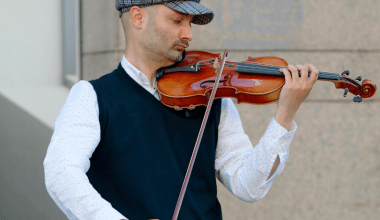If you’ve ever come across the term “musicianist,” you might have paused for a moment, wondering what it truly means. Don’t worry—you’re not alone. While many people are familiar with terms like “musician,” “instrumentalist,” or “composer,” “musicianist” is a word that’s been creating some buzz. So, let’s unravel its meaning together in the simplest way possible.
Understanding the Core: Who Is a Musicianist?
At its heart, a musicianist can be described as someone who is deeply connected to music. Unlike a typical musician, who may focus on performing or composing, a musicianist goes beyond the basics. They immerse themselves in all aspects of music—its theory, its cultural significance, and even its emotional impact. Think of a musicianist as a person who lives and breathes music in its entirety.
This term is slowly gaining recognition, but its roots go back to the idea of someone who is more than just a performer. A musicianist could be an educator, a theorist, or even someone who studies the historical aspects of music. It’s a term that allows for broader exploration and inclusion of diverse musical roles.
How Does a Musicianist Differ from a Musician?
This is one of the most common questions. Isn’t a musician and a musicianist essentially the same thing? The answer is no. While there’s overlap, a musician often refers to someone who plays an instrument or performs music. On the other hand, a musicianist is more of a holistic term. They might:
- Explore how music affects human emotions.
- Study the relationship between music and society.
- Teach others the deeper nuances of musical expression.
- Engage in research to understand how different cultures approach music.
In short, while a musician often creates or performs music, a musicianist is more like a scholar or an advocate of music’s broader impact.
Why the World Needs More Musicianists
Music has always been a universal language, but understanding its full potential requires more than just talent. That’s where musicianists come in. They help bridge the gap between performance and understanding. For example, a musicianist might analyze how a particular genre of music evolved over decades, helping us see its cultural significance.
Moreover, musicianists often act as educators, inspiring others to view music not just as entertainment but as a vital part of life. Whether it’s by teaching music theory or introducing students to global music traditions, musicianists are key players in keeping the love for music alive.
What Makes Someone a Musicianist?
You might be wondering if you’re a musicianist. Here are some traits that might resonate with you:
- Curiosity: A musicianist always seeks to learn more about music—its origins, evolution, and impact.
- Passion: It’s not just about playing or listening to music; it’s about feeling it in your soul.
- Teaching Spirit: Many musicianists enjoy sharing their knowledge and inspiring others.
- Analytical Mindset: Whether it’s understanding chord progressions or decoding lyrics, musicianists love diving deep.
- Cultural Awareness: Musicianists often explore how music interacts with history, culture, and society.
The Evolution of the Term “Musicianist”
Interestingly, the term “musicianist” isn’t widely documented in traditional dictionaries. However, its usage is growing, especially among those who want to describe their connection to music in a more comprehensive way. In a world where labels often define us, “musicianist” feels more inclusive. It acknowledges the multifaceted relationship someone can have with music.
Musicianists in History
While the term might be new, the concept isn’t. Many historical figures could be considered musicianists. For example:
- Ludwig van Beethoven: Beyond composing and performing, Beethoven’s works reflect deep emotional and philosophical exploration.
- Leonard Bernstein: Not just a conductor, Bernstein was an educator and advocate for understanding music’s societal impact.
- Zoltán Kodály: Known for his contributions to music education, Kodály embodied the spirit of a musicianist.
These individuals didn’t just play music; they lived it, analyzed it, and shared its deeper meanings with the world.
How to Embrace Your Inner Musicianist
If you’ve realized that you align with the definition of a musicianist, here are some ways to nurture this identity:
- Study Music Theory: Deepen your understanding of how music is structured.
- Explore Music History: Learn about the origins of different genres and styles.
- Teach Others: Share your knowledge through lessons or workshops.
- Experiment: Try creating music in new ways or blending styles.
- Listen Intentionally: Pay attention to the details in songs—the lyrics, instruments, and emotions.
The Future of Musicianists
As music continues to evolve, the role of musicianists will become even more important. In a digital age where music is often consumed quickly, musicianists remind us to slow down and appreciate the art form in its entirety. They encourage us to think about music’s role in shaping identities, cultures, and communities.
Related Articles:
For further reading, explore these related articles:
For additional resources on music marketing and distribution, visit DMT Records Private Limited.






